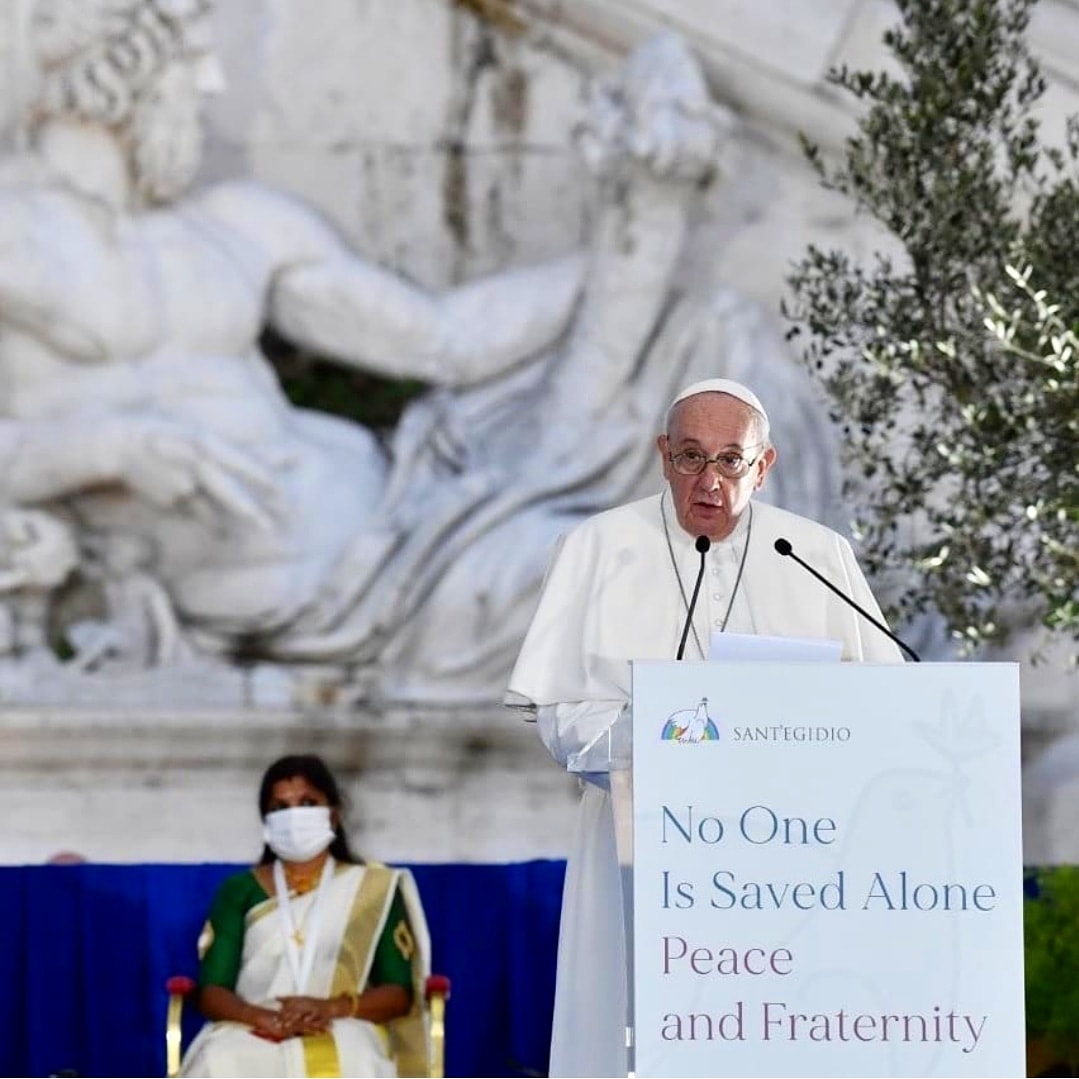
Jn. 2: 13-25
One of the modern prophets of our time is Mohandas Karam Chandh Gandhi. His life is an ever-relevant message and source of inspiration for the entire world. In fact, he was an ordinary man and leading a peaceful life. Nonetheless, 7 June 1893, was an awakening day in his life and that day he recognized his call to be a prophet and seeker of truth. Gandhi, then young barrister, was on his way from Durban to Pretoria to meet one of his clients. When the train had reached Pietermaritzburg, he was asked to move out from the first-class compartment reserved for the white passengers to the van compartment for the lower class travellers. He refused the demand of the conductor, showing his reserved ticket for the first class. Nevertheless, he was thrown out of the first-class compartment unjustly. Gandhi spent the whole night in the waiting room of the station. He did not have sufficient warm clothes to defend the biting cold; unfortunately, he kept them inside his luggage. He was reluctant to ask for another coat from the station because of being afraid of further racist insult. Anyhow, that night was a turning point in His life. Later on, he wrote in His autobiography referring to this incident: “The hardship to which I was subjected was superficial – only a symptom of the deep disease of colour prejudice. I should try, if possible, to root out the disease and suffer hardships in the process.”
In our daily life, we come across various forms of corruption and injustice. It may be financial corruption among the political leaders or civil servants; at times, we may come across moral corruption among our religious leaders, our own family members, friends, etc. What is our responsibility towards all these forms of corruption? Do we need to close one eye and shut the other? Do we need to take a passive stand telling, that this is none of our business and others will see to it, or can I make this place a better one? Am I afraid that if I point out someone’s corruption in authority, I have to encounter the consequences?
The gospel passage of the day invites our attention to take a prophetic stand in these situations as Jesus did. Jerusalem temple was considered as the centre of Jewish life. It was the meeting place of God-human encounter. We are aware of the Ark of the Covenant in the temple in the holy of holies, and once a year, a priest goes to incense and offer blood on Yom Kippur day etc. However, in the course of time lots of human interests crept into this most sacred place. We see a tension between sacred and profane. These elements shifted the focus from worship to business. To facilitate worship, they started selling animals, birds, and coins to assist Jewish pilgrims from different parts of the world. Over time, this business became the temple’s focus, and the worship of Yahweh lost its primacy.
Jesus always reacted to the moral corruption of his time. During his time, the religious leaders closed one eye and shut the other because they all enjoyed all this business’s finch benefit. Jesus reacted to this moral corruption with his just anger and reminded them that the temple is the house of the Lord, a place meant for prayer and worship. He goes one more step ahead and teaches them that it is not the building that makes a place sacred but the presence of the Lord. Therefore, each one of us is called to be the living temples of the Lord by transforming our hearts as a place of worship for the Lord.
When Gandhi encountered racism, he realized how his fellow brethren were treated without due human dignity. They failed to recognize that each human person is created in the image and likeness of God, carrying the presence of God in them. Thus, he dedicated his life as the voice of the voiceless and dedicated his life to serving humanity, the living temples of the Lord. When we experience moral corruption, let us not compromise on ourselves. Let us rely on God’s grace so that we may be able to become authentic believers who can encounter the sense of the sacred within oneself, in others and the palaces consecrated for the Lord. As we meditate on this passage today, let us pray for the grace to be prophetic witnesses who dare to question various forms of corruption and let us assist our fellow brethren who are the living temples of the Holy Spirit to encounter divine within them and others…